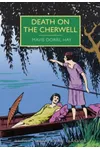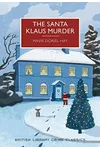Picture a British storyteller who spun clever murder mysteries and stitched together the rich history of rural crafts—meet Mavis Doriel Hay! Born in 1894, this Golden Age crime novelist and quilting expert left a unique mark on both detective fiction and artisanal culture, blending wit, intrigue, and a love for tradition.
Despite personal tragedies, including losing her husband and brothers in wartime, Hay’s resilience shone through in her diverse works, from cozy whodunits to scholarly texts on handicrafts. Her life was a tapestry of creativity, and her stories still captivate readers today.
The Making of Mavis Doriel Hay
Mavis Doriel Hay was born on February 12 or 13, 1894, in Potters Bar, Middlesex, into a middle-class family that nurtured her intellectual curiosity. She attended St Hilda’s College, Oxford, from 1913 to 1916, a time when women couldn’t yet earn degrees—a fact that didn’t dim her ambition. Her early years in north London and her Oxford experience shaped her sharp, observant storytelling, especially in her crime novels set in academic and urban settings.
Hay’s passion for rural life emerged early. In the 1920s, she worked with the Rural Industries Bureau, researching traditional crafts. This led to a lifelong collaboration with Helen Fitzrandolph, culminating in works like Rural Industries of England and Wales. Her marriage to Archibald Menzies Fitzrandolph in 1929 connected her to aristocratic circles, amplifying her influence in craft exhibitions.
Mavis Doriel Hay’s Unforgettable Stories
Hay’s brief but brilliant foray into detective fiction during the 1930s produced three novels that epitomized the Golden Age of British crime writing. Her debut, Murder Underground (1934), is a delightful puzzle set in London’s Belsize Park station, where the murder of an unlikeable spinster sparks amateur sleuthing. Dorothy L. Sayers praised its “feckless, exasperating” character Basil, noting Hay’s knack for lifelike figures.
Death on the Cherwell (1935) dives into Oxford’s academic world, exploring women’s education through a murder mystery at a fictional women’s college. Its witty dialogue and social commentary reflect Hay’s own Oxford days. The Santa Klaus Murder (1936), set in a festive country estate, delivers a locked-room mystery with a darkly humorous twist, showcasing Hay’s talent for blending cozy settings with sinister plots.
Hay’s style is light yet incisive, with intricate plots and vivid characters. Her novels capture 1930s England—its class dynamics, urban bustle, and academic quirks—while her handicraft books, published under her married name, Mavis Fitzrandolph, preserve the artistry of rural traditions, particularly quilting.
Why Mavis Doriel Hay Matters
Mavis Doriel Hay’s legacy bridges two worlds: the thrilling escapism of Golden Age crime fiction and the enduring value of traditional crafts. Her detective novels, recently revived by the British Library Crime Classics series, charm modern readers with their wit and historical detail. Meanwhile, her craft books, like Quilting (1972), remain vital resources for artisans, especially in Wales, where she helped revitalize the quilting industry.
Hay’s ability to excel in such disparate fields, despite personal losses, speaks to her resilience and versatility. She’s a reminder that even lesser-known voices can leave lasting echoes, inspiring both mystery lovers and craft enthusiasts to explore her multifaceted world.
- Born: February 12 or 13, 1894, Potters Bar, Middlesex
- Key Works: Murder Underground (1934), Death on the Cherwell (1935), The Santa Klaus Murder (1936), Quilting (1972)
- Notable: One of the first women to study at Oxford, though she couldn’t earn a degree
Snag Murder Underground or Quilting and dive into Mavis Doriel Hay’s clever, crafty world!


